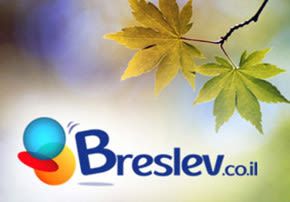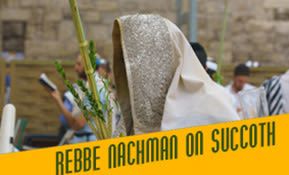
Lessons of Hope!
An unlimited will for the absolute, for perfection, harmony and truth, inhabits our upper soul. It is literally Divine, even though mostly unknown...

The Will
An unlimited will for the absolute, for perfection, harmony and truth, inhabits our upper soul. It is literally Divine, even though mostly unknown to it’s human owner. If we were sufficiently aware of it, we would be invested with an unlimited power of strength.
Unlike the prevalent opinion that ties will to power, the Torah teaches us that our will is basically free of any other consideration. It is independent and therefore, always free. What could ever prevent us from willing?
Tyrants and dictators could momentarily stop us from speaking or acting but could they ever alienate our inner treasure, our will?
Despite obstacles and failures, those daily enemies, despite jails and tortures, we can always keep willing, renew our desire, and arouse the flame.
Hence, he who concentrates on his will, he who tries to develop it without paying any attention to the temporary poor results, such a person will overcome all the physical obstacles, all the mental heaviness. He will become Divinely strong, up to the point of elevating even the lowest aspect of his life.
How does one develop one’s will? By believing in it, no matter what happens and above all, by saying it. When we observe more closely Dovid HaMelech’s (King David’s) poems, we notice that they mainly express the king’s saintly wishes. Knowing that his task was to install the Divine power on earth, he also knew how ferocious would be the forces of opposition; the way to maintain his flame would only be by arousing it with melodious verses, sincere weeping and sighs. . .
This is the mystery of the Menorah/Candelabrum that continues spiritually to shine despite the darkest exiles, despite the destruction of our Holy Temple and its precious vessels. The seven branches of the candelabrum correspond to the seven gates of our head: two eyes, two ears, two nostrils and one mouth. Its main axis corresponds to the mouth: it is the only one that has no mate; nevertheless all the other flames are turned towards it. Speech is therefore the central tool that will allow us to kindle the holy light of our soul until it shall be converted into actual radiance.
The Exception
“Everything that the host tells you to do, you shall do, except if he says to you, “Leave!” (Talmud).
The Shlah HaKodesh reveals an extraordinary idea underlying this precept, which seems to be a simple rule of good manners:
The Host – is the CreatorEverything that he tells you to do, – this is in regard to the Torah, the Revelation . . .You shall do – since the Creator revealed Himself, is creatures must submit to His will . . .Except if he says to you: “Leave!” – If you see in the Torah a passage that seems to exclude you and to tell you “leave,” even if this same passage is quoted by a teacher, you must not obey it! Try nevertheless, and know that basically your teacher does not want you to leave. This order was merely a trial to see whether you would be sufficiently bold and would have the presence of mind to stay nonetheless, at all costs!
The submission to the teacher’s directives represents the first condition for any spiritual progress. However, we shall not obey the order “Leave!” This is the exception.
(Used with permission from COURAGE by Israel Isaac Besancon. Published by Shir Chadash Publishers)














Tell us what you think!
Thank you for your comment!
It will be published after approval by the Editor.